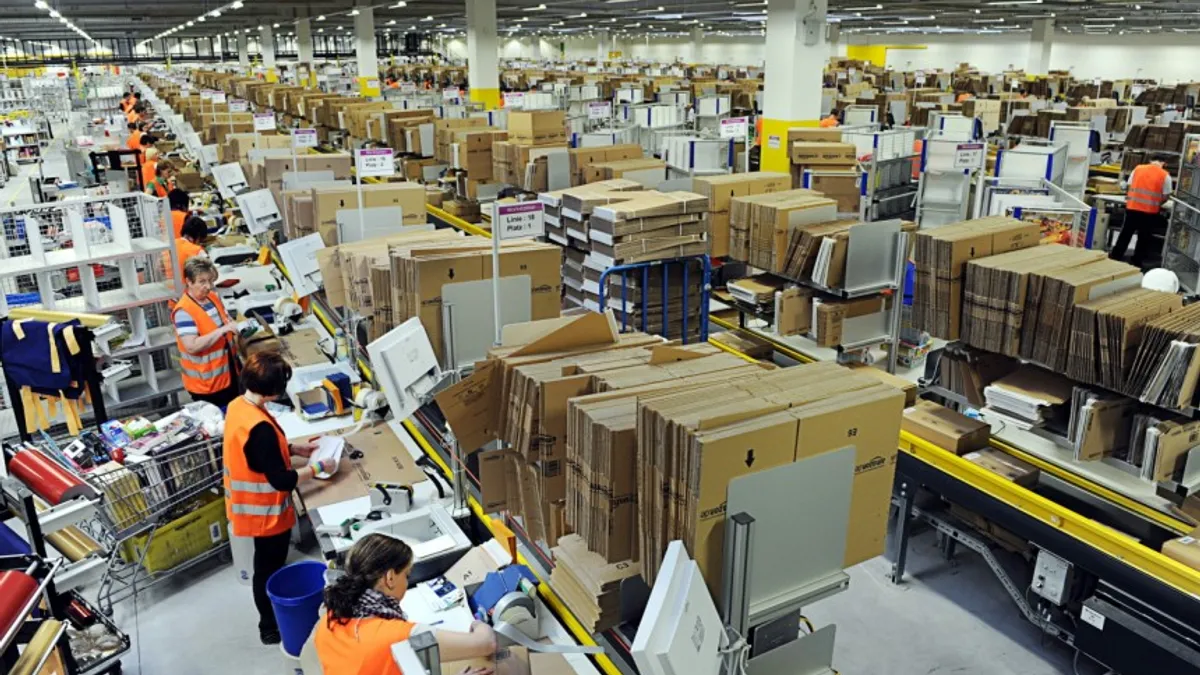Dive Brief:
- Both Arkansas and Missouri, two states with major supply chain employers, passed ballot measures Tuesday raising the minimum wage.
- Arkansas will raise its minimum wage in a stepwise fashion from $8.50 to $11.00 by 2021, and Missouri will raise its minimum wage gradually from $7.85 to $12 by 2023.
- Arkansas is home to Walmart's headquarters and Missouri is experiencing an industrial real estate boom, attracting major tenants like Amazon, among others.
Dive Insight:
Both Missouri and Arkansas have notable corporate residents and a significant number of warehouses, meaning these changes will affect many employers within the supply chain.
In Missouri, and specifically, the greater St. Louis area, industrial real estate is booming alongside the growth in e-commerce since the state offers favorable transit time to most of the country. Amazon has leased more than 1 million square feet in the state, according to the St. Louis Post-Dispatch, and there are millions of square feet under construction right now with developers betting the market won't cool down any time soon.
All that square footage means thousands of jobs. Transportation and warehousing employment in the St. Louis metro area grew 17.7% percent from 2013-2017, according to CBRE.
Arkansas is of course home to Walmart's corporate headquarters. The company itself raised its internal minimum wage to $11 per hour in February, so this vote will not have a huge effect on Walmart itself, but the vast network of suppliers and services firms operating within the Bentonville, Arkansas, ecosystem may feel the change acutely.
Amazon as well raised its internal minimum wage this year, to $15 per hour effective Nov. 1.
The passage of these ballot measures may be good news for workers overall, but supply chain employers ought to be already exceeding even the new minimums if they want to be competitive in the current worker's labor market, experts say.
In a survey of 15,833 warehouse workers, wage was the number one reported priority since warehouse skills tend to be easily transferred from one employer to another in a climate of high worker demand. The survey concluded $12 per hour is the "bare minimum" wage for warehouse workers.
"We're seeing many of our clients offering more attractive wages in order to secure quality talent given the single-digit unemployment market," Brian Devine, senior vice president at EmployBridge who conducted the survey, told Supply Chain Dive in August.
Indeed, in St, Louis, the average transportation and warehousing hourly wage grew from $12.58 in 2013 to $13.98 in 2017, according to CBRE.














